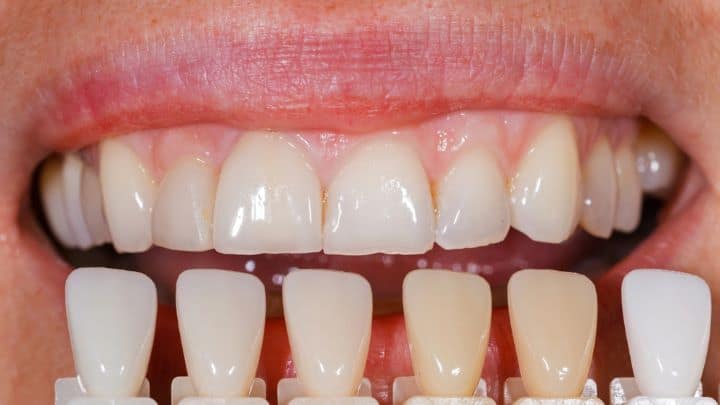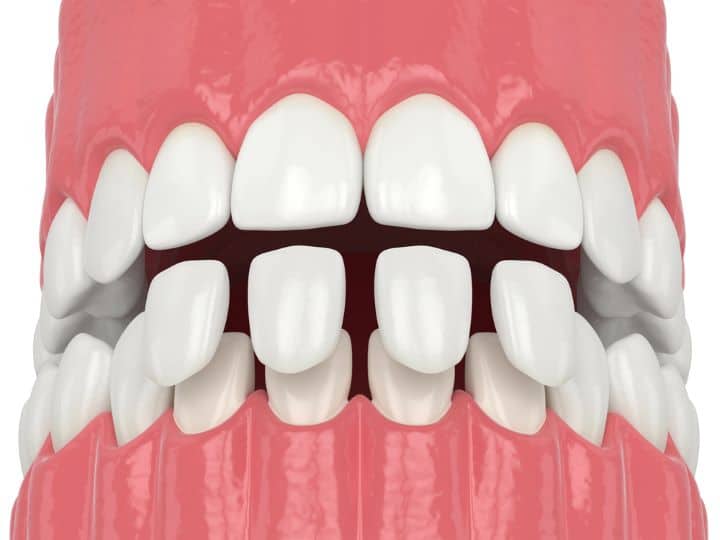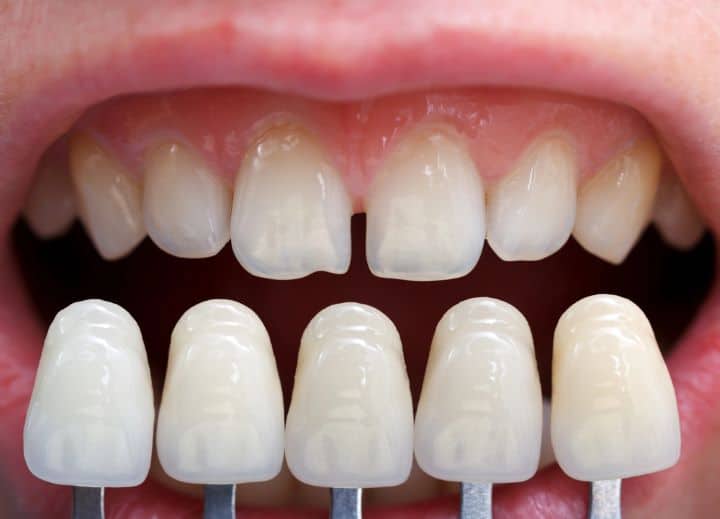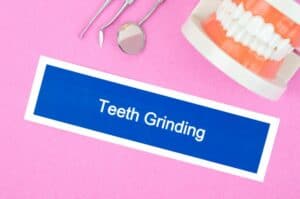Dental Veneers are usually thin coverings for your teeth constructed from porcelain or composite resin.

Veneers are designed to fit the surface of your teeth and they cost from $800 to $2500 a tooth.
They are a popular choice in cosmetic dentistry, solving problems such as discoloration, misalignment, or chipped teeth.
Dental veneers make a brighter, more symmetric smile possible. These ultra-thin shells fit on the front of teeth with a lasting and attractive answer to different imperfections or diseases in dental aspects.
Factors influencing Cost of Dental Veneers:
The selection of material, type, size, dental office location, and the experience and qualifications of your dentist affect the cost of dental veneers.
For example, porcelain veneers, which are more robust and mimic natural teeth better than composite resin ones, are costlier.
Average Cost of Veneers
Range of Dental Veneers / Porcelain Veneers Cost:
Dental veneers cost from $800 to $2500 per tooth, depending on several factors. Porcelain veneers might be at the higher end of this price range, while composite veneers are on the lower side.
The cost of dental veneers also varies significantly between different locations and clinics. Fees are higher in urban areas and regions with a high cost of living. It is advised to look at different price variations and talk to several other dentists to ensure you get competitive procedure charges.
In some cases, preparatory work such as tooth re, shaping, or gum contouring will be required, resulting in the overall cost. It would help if you discussed these possible extras with your dentist during the consultation phase to avoid unexpected financial surprises.
Some dental clinics also add regional taxes and charges, which you must be informed of in advance. It would help if you also kept considering the cost of treatment in case any complication arises later.
Factors affecting Dental Veneers cost:
Extent of the Procedure:
The cost of this procedure depends upon every individual case, the extent of damage to the teeth, and the amount of rejuvenation required to restore their beauty. More damaged, stained, and cracked teeth will require more material, effort, and time investment, costing more money.
Dentist’s Expertise and Location:
A significant factor contributing to dental veneer costs is your dentist’s expertise and work experience.
The more skillful dentists may charge more for their services. Similarly, a dentist located in an area where the cost of living is high, such as in a big city, will have a higher rate than a dentist elsewhere.
Type of Veneers:
The type of material of your dental veneers influences the cost of this procedure, too. Porcelain veneers are longer, stain-resistant, and more natural-looking than composite resin veneers.

However, the porcelain resin veneers are also more expensive than the composite resin ones, so the patient has to make a choice.
Paying for Dental Veneers:
Dental Insurance Cover for Veneers:
Dental veneers are considered cosmetic dentistry. Insurance companies don’t pay for such elective cosmetic procedures.
Financing through Third Party:
Third-party financing companies work in close collaboration with dental offices and hospitals. These provide loans and credits on an interest basis for several procedures in dentistry, including dental veneers.
Patients can benefit from their flexible and more manageable payment plans. However, it is essential to comprehend each third-party firm’s interest rates and policies before availing of this option.
Payment in Installments:
Some dental offices provide patient-friendly payment plans to overcome the financial challenges associated with dental veneers. These plans include more realistic monthly installment options tailored to a person’s budget. Gain a complete understanding of this option during the consultation with your dentist.
Health Saving Accounts and Flexible Spending Accounts:
Also known as HSA and FSAs. Individuals can save their pretax incomes in these accounts to use for some elective medical procedures later on. These accounts can fund your dental veneer costs along with taxation benefits. A complete awareness of these accounts’ contribution limits is necessary to bear the fruits of their benefits.
Making Informed Decisions
Through the journey to accomplish smile improvement with dental veneers, an individual has to make several choices that play vital roles in oral aesthetics and financial concerns.
With a reasonable and well-informed strategy, people can make their way through the intricacies of dental veneer costs without regretting any decision concerning their investment in oral health.
Researching and Comparing Costs
The decision-making process should involve thorough research and cost comparison.
A comprehensive understanding of the financial landscape relies on online resources, reviews, and consultations with several dentists.
Investigating the average costs of dental veneers, considering the differences in regions, and analyzing what impacts pricing allow one to make conscious decisions.
Consulting with a Reputable Dentist
Choosing a good and knowledgeable dentist is necessary to ensure you achieve great results when considering dental veneers.
Planning meetings with potential dentists allows an individual to raise their specific case so that they can know precisely what is proposed as a treatment and how much it will cost.
A good, trustful dentist works with patients to ensure their expectations align with what can be achieved, building confidence through decision-making.
Evaluating financing options:
Regarding the financial aspect of dental veneers, it is necessary to consider different financing options.

One can look at payment plans, third-party providers, and health savings accounts to pick a financial strategy that works with your budget and long-term financial goals.
Through careful evaluation of terms, interest rates, and repayment schedules, one can obtain financing that is sustainable and out of stress.
Understanding the long-term benefits of dental veneers:
Aside from immediate costs, knowing the long-term value of dental veneers is just as important. These cosmetic modifications frequently provide long-lasting outcomes that boost self-esteem and general welfare.
The transformative effect on the quality of one’s life is an important aspect that brings out a value proposition, and hence, investing in dental veneers signifies more than just money matters.
Conclusion
In conclusion, a complete comprehension of all the aspects, be it cosmetic or financial, is necessary before embarking on this journey of a beautiful, radiant smile.
Whether you choose between porcelain and composite resin veneers to enhance the aesthetics of your smile, you need to have a profound grasp of their individual properties and cost options.
In addition, the choice of dentist, their location, and the cost of preparatory procedures required can add to the expenses enormously and should be considered.
Similarly, financing options like insurance coverage and third-party payment plans should be explored in advance to make this experience worthwhile.
Explore all the options available to make an informed decision so that you can start your journey confidently, bearing in mind that you have researched all the cosmetic and financial horizons of your dental veneer procedure.








